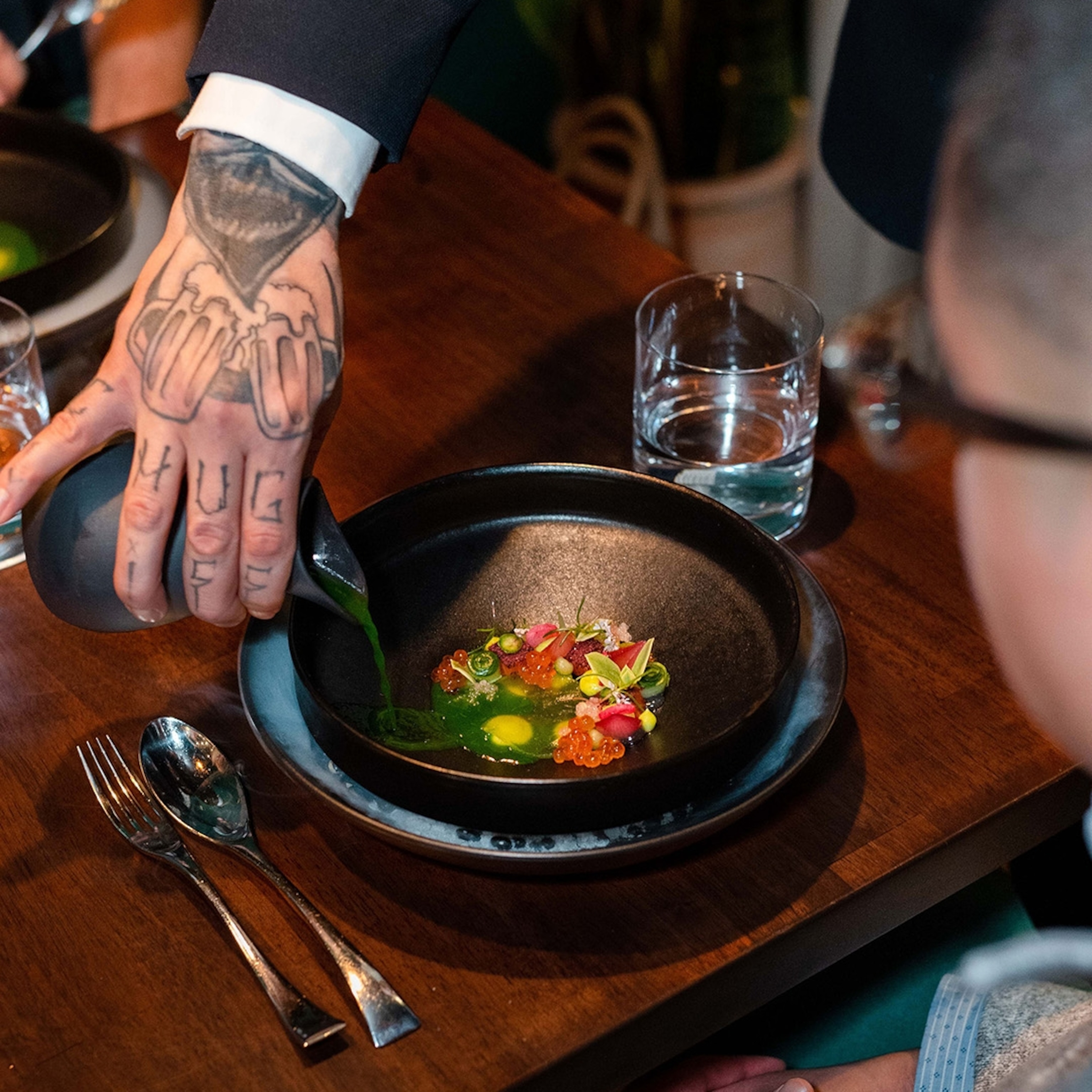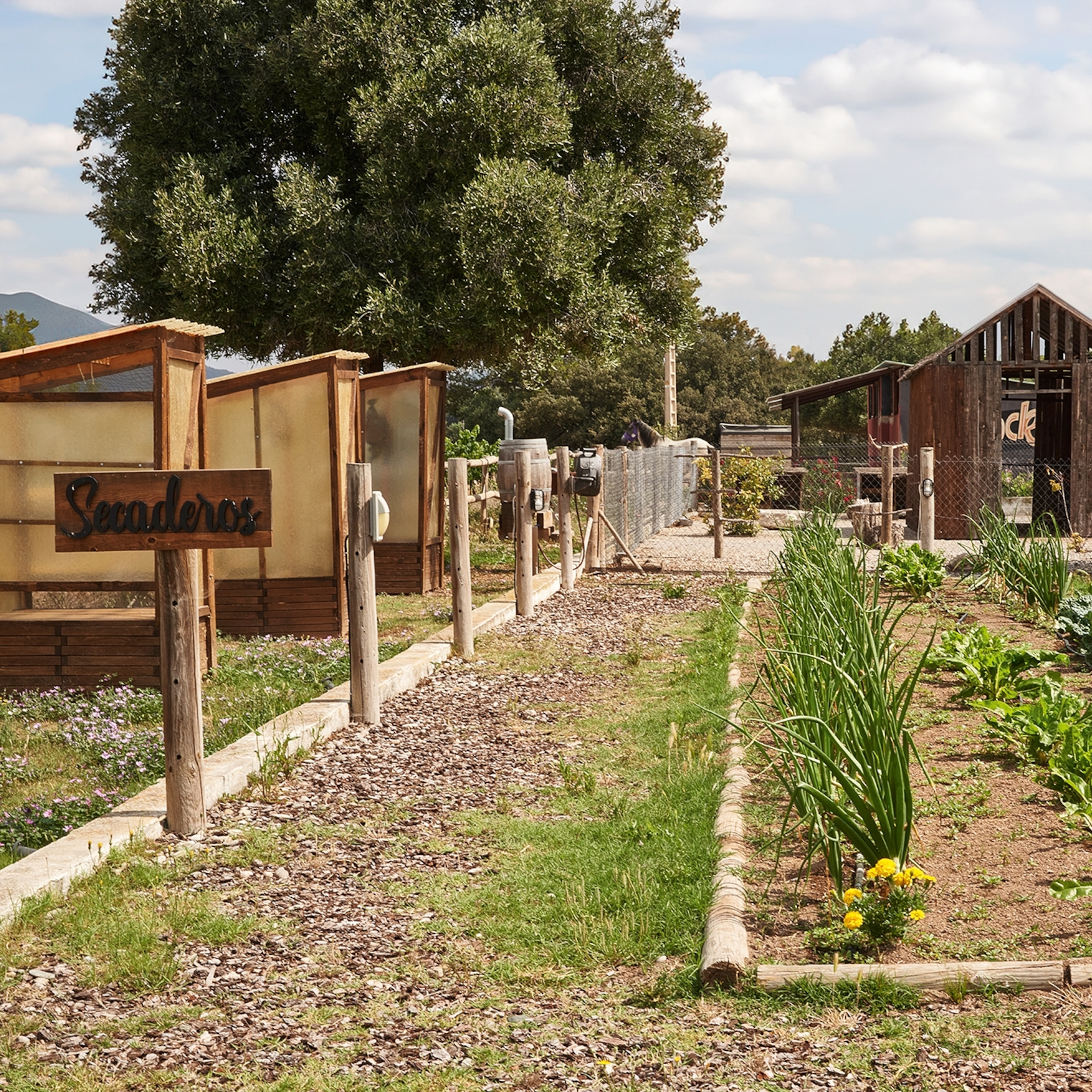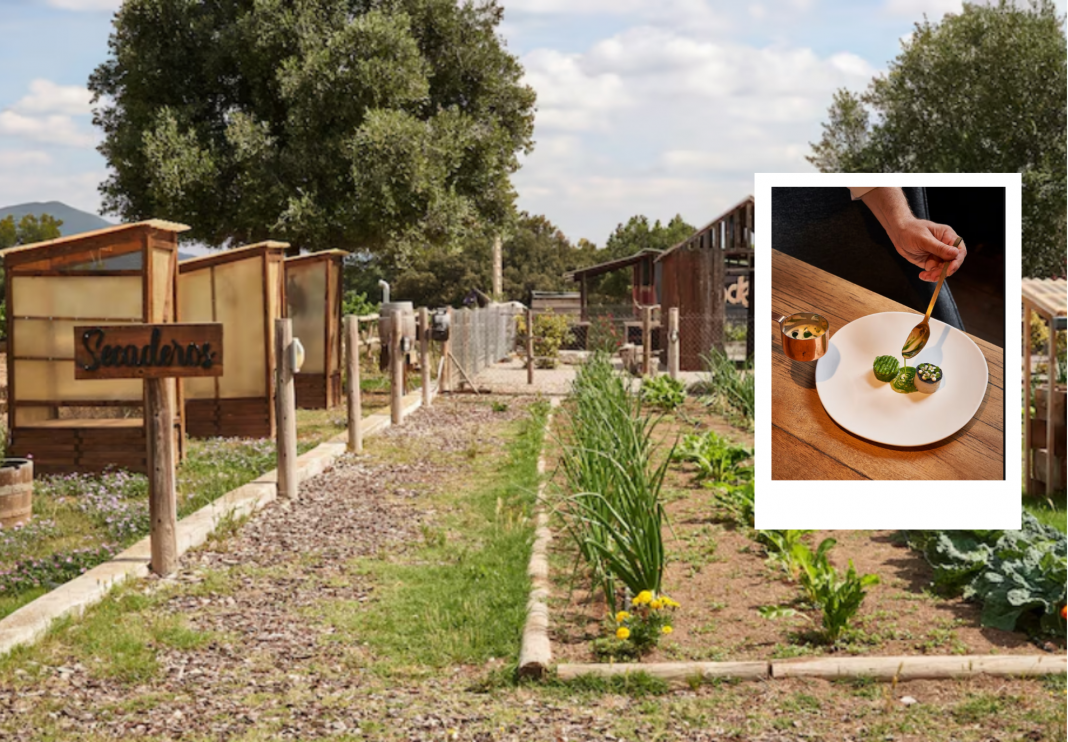In the sun-drenched hills of Catalonia, a culinary revolution is taking place, led by a new generation of chefs who believe that great food and a commitment to the environment can go hand-in-hand. At the forefront of this movement is Casa Nova, a low-waste restaurant by acclaimed chef Andrés Torres. Far from a simple farm-to-table concept, this eatery is a masterclass in a closed-loop system, where every ingredient is honored and waste is treated as a creative challenge rather than a byproduct. Torres’s philosophy is rooted in a deep respect for nature and a desire to create a dining experience that is not only delicious but also deeply ethical. This is a story of culinary innovation, where the pursuit of flavor is matched by a dedication to preserving the planet, bite by delicious bite.
A Vision Born from the Earth
Chef Andrés Torres’s journey to becoming a pioneer of sustainable gastronomy was born from a deep personal connection to his native Catalonia. He saw a need to create a dining model that honored the rich bounty of the region while minimizing its environmental footprint. Torres’s vision for Casa Nova was to create a restaurant where the ingredients are the true stars, and their journey from the earth to the plate is as pure and respectful as possible. He believes that a chef’s creativity should not only be about flavor but also about responsibility, and that every decision—from sourcing to plating—should reflect a commitment to sustainability.

His philosophy is built on three core pillars: sourcing local and seasonal ingredients, minimizing food waste, and embracing a holistic approach to the kitchen. Torres works directly with small, local farmers and producers, ensuring that every ingredient is grown or raised with care and has a minimal carbon footprint. He sees this direct relationship with his suppliers as a key part of his creative process, as it allows him to build a menu that is a true reflection of the land and the season. This dedication to local sourcing is the foundation of Casa Nova’s entire operation.
The Art of Minimizing Waste

At Casa Nova, the concept of a low-waste kitchen is elevated to an art form. Chef Torres and his team approach every ingredient with a sense of purpose and a commitment to using every part. For example, vegetable stems and peels that would typically be discarded are transformed into flavorful broths and sauces. Leftover bread is repurposed into breadcrumbs or used as a thickening agent for soups. The goal is to eliminate food waste completely, a challenge that requires an immense amount of creativity and planning.

This waste-free philosophy extends beyond the kitchen. The restaurant composts any organic material that cannot be used and sends it back to the local farms to enrich the soil. The restaurant also has a strict no-plastic policy, using reusable containers for storage and sourcing. This holistic approach to sustainability is what sets Casa Nova apart. It’s a restaurant where every detail has been considered, and every decision is a conscious choice to minimize its impact on the planet.
A Culinary Experience Rooted in Place

A meal at Casa Nova is not just about eating; it is a full-sensory experience that connects you to the land and the culture of Catalonia. The menu is a reflection of the seasons, with dishes that change frequently to highlight the freshest ingredients available. Chef Torres’s cuisine is rustic yet refined, with a focus on simple, clean flavors that allow the quality of the ingredients to shine through. The dining experience is intimate and personal, as the restaurant is located in a beautifully restored Catalan farmhouse.

Guests are encouraged to slow down and savor each course, to appreciate the journey of the food from the farm to the table. The staff is knowledgeable and passionate about the restaurant’s philosophy, and they are always happy to share the story behind each dish. It is a dining experience that leaves a lasting impression, not only for the incredible food but for the profound sense of place and purpose that permeates every detail.
A Model for a Sustainable Future
Casa Nova is more than just a restaurant; it is a model for a more sustainable and ethical future for the culinary industry. Chef Torres has shown that it is possible to create a Michelin-star-worthy dining experience while also maintaining a deep commitment to the environment. His work is an inspiration to other chefs and restaurant owners who are looking to reduce their own environmental footprint.

The success of Casa Nova is a testament to the fact that consumers are increasingly looking for businesses that align with their values. People are willing to pay for food that is not only delicious but also ethical and sustainable. The restaurant’s popularity proves that a commitment to the planet can also be a successful business strategy. It’s a powerful message that is being heard all over the world, inspiring a new generation of chefs to embrace a more sustainable approach to their craft.



